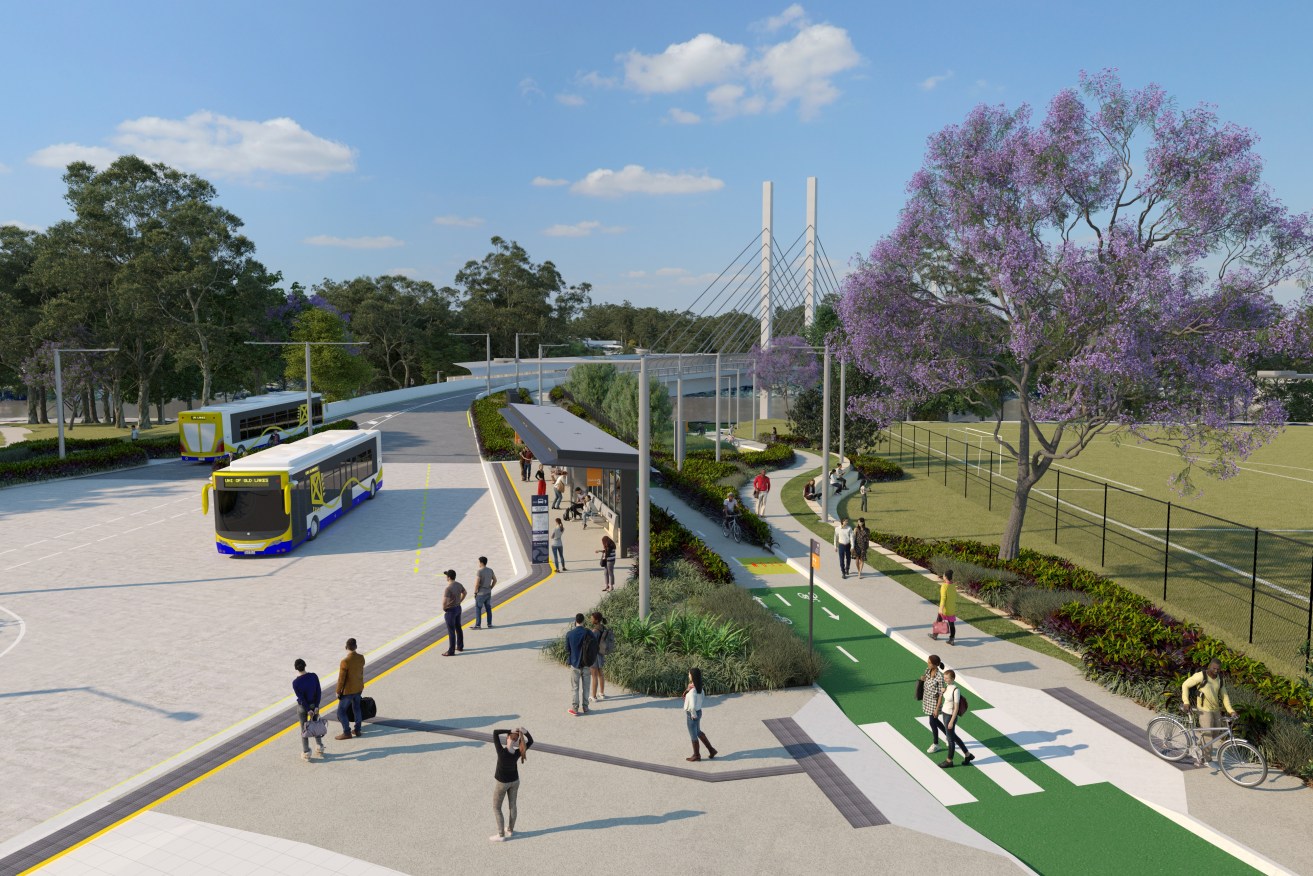Brisbane Metro transit project rolls into suburbs with new UQ station
Another piece of the $1.2 billion Brisbane Metro transit project has been unveiled, with the release of designs for a new station at the University of Queensland.


Design for the new UQ Lakes bus platform as part of the $1.2 billion Brisbane Metro project. (Supplied image)
Work on the new UQ Lakes station and associated fast charging infrastructure for the all-electric vehicles at Dutton Park will begin this month, creating a transit hub where students and staff are expected to generate 20,000 passenger trips a day.
The release of the new UQ station design, which will include a third platform, comes as the council embarks on a comprehensive review of the city’s bus network aimed at reducing congestion in the CBD and making sure services are integrated with the Metro and Cross River Rail.
Increased congestion is a major worry for the future of the network, which currently has about 385 buses clogging the Cultural Centre precinct in peak times.
The council is set to reveal its plans for the network by October, when formal public consultation will begin.
In a recent interview with radio station 4BC, council’s transport chair Ryan Murphy described the planned changes as the most extensive to Brisbane’s bus network in over a decade.
However, the council is clearly wary of provoking community angst over the review, given bus services move about 80 million passengers a year. Murphy has been at pains to point out the last review, which caused a public outcry, was driven by the state.
“We haven’t had a good network review arguably in 25 years but the last review was in 2013 by the then state government,” he said.
Murphy said the proposed 2013 changes, many of which were subsequently abandoned, were driven by the need to cut costs.
“It (the current review) is not about cuts or reducing costs – it’s about improving services and with Brisbane Metro coming on line in 2024 we are going to need to make these changes to evolve Brisbane’s public transport network to give us a network that is modern, that is fit for purpose and that is highly reliable,” he said.
The council and south-east Queensland’s public transport authority Translink have been working on the review for the past two years.
He said with Cross River Rail, the Queens Wharf development and Brisbane Metro all opening over the next few years it was time to consult the community on a comprehensive review of the city’s bus network.
He descried the consultation process as a “conversation with Brisbane residents” that will take about a year to complete.
“The reality is that there will have to be changes to make Brisbane Metro work. There is far too much bus congestion in the CBD. We have these great busways that get people into the CBD really quickly but once they get there they’re stuck on Victoria Bridge or the Queen St bus tunnel and their journey slows down.”
Other changes that needed to be bedded down were all-door boarding, cashless fares and reducing times on bus platforms.












